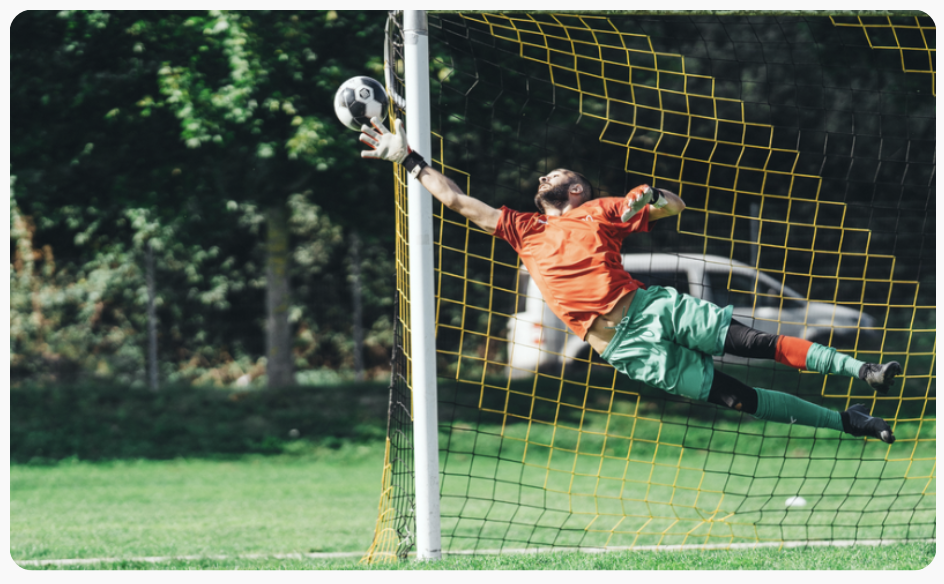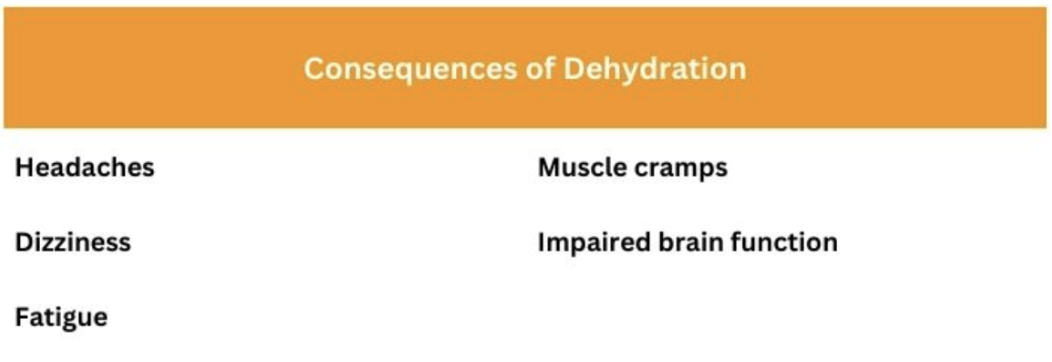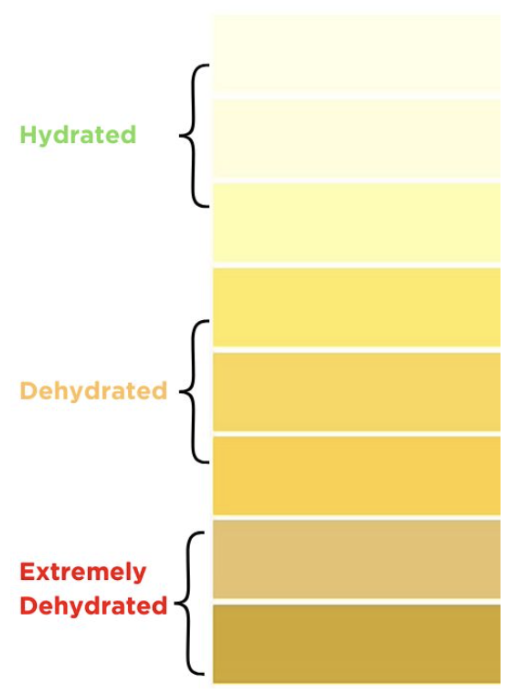Soccer Nutrition:
Understanding Player Performance
Fueling for your sport is a crucial aspect of an athlete's preparation, especially when it comes to optimizing performance. In a discipline like soccer, it's essential for players to effectively harness various nutrients to sustain themselves throughout a match. A soccer blog post like this aims to highlight the sport's unique demands on an athlete's stamina and the need for high endurance levels. For soccer players, it's of utmost importance that the nutrients they consume cater specifically to their muscle and energy needs. Key to their nutrition are the three macronutrients: carbohydrates, protein, and fats. Beyond these, players require trace amounts of vitamins and minerals, known as micronutrients. Together, these nutrients become an invaluable asset for soccer athletes, ensuring they're at their peak both in-season and off-season. To understand the role these nutrients play for a soccer player, let’s break them down further.
Macronutrients
Nutrients we need in larger quantities that provide soccer athletes with energy

When combined together, macronutrients serve as a strong asset for the athlete’s performance. Carbohydrates provide important energy for muscles during exercise, protein contributes to building and repairing muscle, whereas fats help absorb micronutrients and contribute to a players stamina. All of these nutrients have their place during a match or at practice, but timing and portions are how one optimizes these effects.
Carbohydrates
Carbohydrates are the primary energy source during fast and high-intensity exercise. They are made up of sugars like glucose and fructose to provide your body with quick energy. However, not all carbohydrates are created equally. Some foods contain different carbohydrates than others. This is why it’s important for athletes to choose wisely when building their plates. Foods like flavored yogurts, fruits (fresh and dried), plain or flavored milk, honey, granola, sports drinks and gels are loaded with simple carbohydrates. These foods are easy to digest and absorb quickly helping players feel energized and ready to perform. On the other hand, foods such as beans, whole grains, oats, quinoa, potatoes, and starchy vegetables contain complex carbohydrates. These are helpful in maintaining energy over longer periods of time. All carbohydrates have a place in an athlete’s diet and timing of those will optimize nutrient utilization.

Protein
Protein has become a hot topic in the sports world. Many know that protein is essential to aid in muscle repair, building mass, and maintaining lean body mass. This nutrient works best in conjunction with carbohydrates and fats. The combination of macronutrients allows for carbohydrates and fats to go towards replenishing energy loss, whereas protein can be dedicated to strengthening tissue. Protein is an important energy source when needed, however, it’s not as efficient as its counterparts.
An important consideration when choosing a food source is to know that not all proteins are created equal. Proteins are made up of essential and nonessential amino acids, which are the building blocks that repair muscle. Essential amino acids must come from the diet because the body cannot produce these important building blocks. The body is able to synthesize nonessential amino acids on its own, meaning we do not need to consume as much of them as essential amino acids. When choosing a good source of protein, you want to aim for a complete protein, which contains all 9 essential amino acids. You don’t have to eat complete proteins at every meal, but it is important to eat enough of both throughout the day. You can eat complete proteins from both plant and animal sources. All animal protein provides a complete protein option with each serving. Plant proteins often lack one or more essential amino acids, but you can pair two sources together to create a complete protein option. Listed below are various sources of complete protein examples:
 When combining plant proteins, any of the combinations in the image below will provide a complete protein. For example, a dairy product and a grain or a grain and a legume.
When combining plant proteins, any of the combinations in the image below will provide a complete protein. For example, a dairy product and a grain or a grain and a legume.
- The grain category is made up of rice, oats, wheat, corn, barley, and rye.
- The seed category is made up of pumpkin, sunflower, chia, sesame, and flax seeds.
- The dairy category is made up of milk, yogurt, and cheese items.
- The legume category is made up of beans (pinto, fava, lima, etc), peas, lentils, chickpeas, etc.


Protein requirements vary widely between individuals. Working with a sports dietitian is a great way to figure out individual needs, however, a general rule of thumb for the endurance athlete is to aim for 1.4-1.6g of protein/kg of body weight.
Fats
Healthy fats are crucial for anyone to help support the heart, joint health, hormone production, and aid in vitamin absorption. Fat is the highest source of energy, but it also takes longer to digest. By slowing down digestion, timing of fat consumption should be a high-priority for soccer players. Fats should be consumed throughout the day with ample time before a match. It is best recommended to limit high fatty foods when eating less than 4 hours prior to a match or intense workout.
When choosing healthy fats, it is important to consider which ones provide the most health benefits. Both saturated and unsaturated fats are part of a well-rounded diet, but it is good practice to keep intake of saturated fats to a limited amount (the current recommendation is to have no more than <10% of your total caloric intake from saturated fats). The majority of fats should come from unsaturated fatty acids (both polyunsaturated and monounsaturated), which are liquid at room temperature. These fats contribute to a healthier blood cholesterol profile and can decrease inflammation. Unsaturated fats aid in overall health and support athletes through recovery, whereas excessive saturated fats can lead to inflammation and slower recovery. Healthy fats are best found in many plant sources and some animal sources. Here are some resources to help organize your daily fat intake.

How to Build a Performance Plate
Now that we’ve covered some basics and important considerations, you can start building your own performance plate. Previously, we discussed how timing plays a part in a soccer player’s overall nutrition.
Pre-Match Fueling
The best way to prepare yourself before a match is to eat a well-balanced meal 3-4 hours before kickoff. This gives your body plenty of time to digest the foods before having to start on the field. With ample time, your pregame plate should include a high portion of carbohydrates and a moderate amount of protein, fiber, and fats (See example below).
If it is 1-2 hours before kick off and you haven’t been able to eat, it’s still important to eat a small meal that is high in carbohydrates, with low to moderate amounts of protein, fiber and fat. If you did eat 3-4 hours before the game but are still hungry, you can also eat a small snack high in carbohydrates at this time.
When it comes to 30 minutes or less, you will want to prioritize easy to digest carbohydrates, with low fat, fiber, and protein. A pre-game snack can serve to top off energy stores to help get through the first half of the game.
Example timeline for pre-game nutrition:
3-4 hours: Oatmeal & fruit with greek yogurt and/or eggs; Pasta with chicken, veggie, and sauce/oil/cheese
1-2 hours: Pretzels/veggies/pita bread with hummus or tzatziki; cereal with fruit
≤ 30 mins: Granola bar; applesauce; dried fruit
If you struggle to build a breakfast for morning practices, here are some great tips to build a better breakfast!
Post-Match Fueling
Striving to have a post-match fueling strategy can also work to a player's advantage. Players should aim to eat within 60 minutes of finishing their activity. This does not have to be a large meal right away. Players can pack quick snacks to have until they are able to eat a post-game meal. Post-match fuel helps to kick-start the recovery process by replenishing glycogen stores and supplying protein for muscle repair. Once players are home, eating a meal containing high fiber carbohydrates, lean proteins, and healthy fats to provide the rest of their necessary nutrients.

Hydration Matters 
Water is essential to help regulate body temperature, hydrate muscles, and aid digestion. Soccer players need to drink enough water to keep themselves properly hydrated before, during and after their match. We lose about 1 liter of water per day just through urination, sweating and breathing; however, athletes lose even more during long periods of high-intensity movement. Along with adequate nutrition, preventing dehydration should be a regular part of an athlete’s routine. Dehydration can lead to several consequences as listed below.
So how do you know if you are hydrated or dehydrated?
Luckily, observing urine color can be a quick and easy way to assess hydration status.
To avoid dehydration, athletes should be hydrating before they start to feel thirsty. Thirst is not a great indicator for hydration needs. Thirst actually shows that the body is already dehydrated. Instead it is best to prevent thirst w/ a hydration schedule:
A good rule of thumb:
- 2-3 hours before exercise: 16-20 oz fluids
- 15-20 min before exercise: ~8 oz fluids
- For every 15 mins of high-intensity work: 6-8 oz
Sample Schedule for Soccer Players:
6am: Pre-workout snack/meal (Pre-game meal/snack tips)
8am: Breakfast (Post game/training tips)
10am: Snack
12pm: Lunch
2pm: Pre-practice snack (More pre-workout meal/snack ideas)
4pm: Post workout snack (Post game/training tips)
6pm: Dinner
8pm: Evening snack
Podcast: Performance Nutrition for Soccer Players
Conclusion
The information discussed here may require some shifts in your schedule, but these changes can help take your athletic performance to the next level. These practices help prevent chances of injury and support growth in strength and stamina. Players should be consuming plenty of nutritious foods and fluids to fuel their bodies during all activities. In turn, players will be able to support themselves through their current season and prepare to move forward in their athletic career.
Key Takeaways
- A key part of any diet is to make sure you are eating enough to support your body’s function and physical activity. Another key component is to include variety in your diet to provide all of the macro and micronutrients.
- Without adequate hydration, the effects can be detrimental to a player’s performance. There are several tests to monitor hydration, but the most convenient and affordable option is using the urine chart. Use that to your advantage and be on top of your hydration in order to optimize performance.
- It is important to think about how you are fueling your body, but it is just as important to eat foods you actually enjoy! Foods do not have to be bland and boring in order to fuel your body. You can add in fresh herbs, different seasonings and pair your favorite food items to add variety and nutrients into your diet!
People Also Ask
What foods should soccer players avoid?
When considering optimal nutrition for soccer, it’s important to consider what foods to utilize for fuel, comfort, enjoyment, and support of the strenuous activity you endure. While all foods you enjoy should have a place in your diet, limiting added sugars can help improve performance. Foods such as baked goods, fried foods, candy, etc. don’t need to be eliminated, but they should be limited in a soccer player's diet. Having too large of quantities can lead to sluggishness and take up room for high-nutrient foods.
What are the worst things to eat before a soccer game?
To continue from the previous question, high-fat foods should be limited before a game. Foods such as baked goods, fried foods, and fast foods are some examples to avoid prior to a game. Fat takes longer to digest than carbohydrates and can result in slower performance. High carbohydrates with some protein is ideal for a pre-game meal.
How many meals should a soccer player aim to eat a day?
Soccer athletes need to be fueling frequently throughout the day to make sure they eat plenty of calories. Players should aim to eat every 2-3 hours which should include at least 3 balanced meals, with snacks in between and around practices. Use this guideline to help you plan your meals!
How much should a soccer player eat in a day?
A soccer player's diet should consist of 55-60% carbohydrates, 15-20% protein, and 25-30% fat. The amount of calories an athlete should consume in a day depends on age, gender, weight, and activity level. Work with a registered dietitian to understand your specific needs.
Does nutrition periodization improve soccer performance?
Soccer season is only a portion of the year, with training and conditioning often being year-round. Nutrition periodization during in-season, pre-season, and off-season may benefit your overall soccer performance.
Is it safe to decrease calories or cut out carbohydrates during soccer training?
Carbohydrates are the primary fuel source for playing soccer. Restricting calories and/or carbohydrate limits the amount of fuel available which may decrease performance during exercise or delay proper recovery. If you’re looking to improve your soccer performance, it’s important to consume sufficient calories and carbohydrates.
Where can I find an even more in-depth review of soccer nutrition?
Check out our E-book on performance nutrition for soccer players here.
Struggling to achieve high levels of soccer game time energy?
Our Ignite the Field program is designed to rapidly increase soccer athletes' game time energy levels to help them compete at the highest level for the entire game.
You can learn more about Ignite the Field and enroll here.






